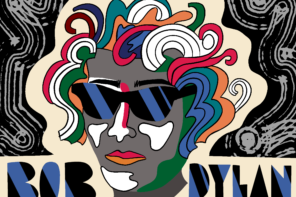Adulting is tricky; we must define ourselves within the bounds of society’s expectations, navigate newfound independence, and experience various pivotal relationships. However, an additional layer of paradoxical expectations is imposed on women in particular: they are expected to mature, become responsible and reasonable; always poised, and never hysterical. Additionally, the autonomy that society anticipates of adults conflicts with patriarchal expectations for women, as the development of independent ideas women form as they grow older stifles the subservience to which patriarchy subjects them. Women, therefore, cannot fully flourish within the confines of society’s paradoxical womanhood. To refute this norm, the concept of girlhood has recently been retrieved and reappropriated to signify a liberation from these impositions. Women have begun to identify as “girls,” not in a patronizing way, but rather to openly embrace the disarray in their lives that is more accepted at a young age. This current conception of girlhood has emerged primarily through social media, with #girldinners and #hotgirlwalks. Most recently, Tik-Toks have captured the turbulences of girls’ lives to the sound of Olivia Rodrigo’s unsettling scream in a performance of her newly released sophomore album, GUTS’ opening track, All-American B*tch. The reception of Rodrigo’s album has in fact paralleled this trend of girlhood, with many female fans defining themselves as “20-something teenagers.” Although GUTS was widely relatable to them, these listeners confined themselves to the term “teenager” because they considered the album’s themes to be exclusive to adolescence and inconsistent with societal ideals of womanhood.
Unlike society’s stable depiction of adulthood, Rodrigo assumes agency over her actions yet unapologetically follows her gut, taking risks and making mistakes, unafraid of the mess she provokes.
Rodrigo is often associated with girlhood and has a presumed youthful fanbase, given her Disney Channel roots and her self-written debut album, Sour, which chronicled her first heartbreak. By the age of 18, Rodrigo had established herself as a teen idol through her ability to divulge adolescent sentiments as meaningful in a society that often disparages them. Yet, her poignant lyrics have ultimately transcended generations and amassed a far wider following. Additionally, the release of GUTS two years after her debut, means Rodrigo is now 20, as is much of her audience who has grown up alongside her. Therefore, as Rodrigo matures, GUTS escapes the confines of girlhood, and ushers in the uneasy beginnings of womanhood. Unlike society’s stable depiction of adulthood, Rodrigo assumes agency over her actions yet unapologetically follows her gut, taking risks and making mistakes, unafraid of the mess she provokes. Rodrigo simultaneously struggles to reconcile the dichotomies imposed on women, fearing the loss of her ingénue status within her career. Rather than being exemplary of girlhood, Rodrigo subverts the image of womanhood society has envisioned.
The album’s incorporation of pop-punk elements from the 1990s—specifically, the Riot Grrrl music movement, which challenged society’s definition of women as subservient–has made many of GUTS’ older listeners nostalgic for their youth, and has alluded to the album’s rebellious nature. In several songs, Rodrigo adopts the voice of female artists who have inspired her, as they “aren’t afraid to be angry and remorseful and like spiteful and snarling.”
Nevertheless, in the song’s outro, Rodrigo finds herself trapped in a dreamlike state with heavenly harmonies echoing what is expected of her, perpetuating a vicious cycle of women continuously striving for society’s unachievable ideals.
GUTS’ opening track, All-American B*tch, epitomizes these elements as its lyrical and instrumental contradictions mirror the irreconcilable societal expectations reflected onto women. The verses are underlined by a gentle guitar as Rodrigo’s soft vocals illustrate the ideal, calm, and blissful woman. However, this idyllic realm is repeatedly interrupted. Musically, both the chorus and bridge unexpectedly explode into a mix of aggressive drums, electric guitars, and Rodrigo’s blaring vocals. Lyrically, the entire song is infused with irony, as Rodrigo emphasizes the anguish of being chained to unachievable aspirations by juxtaposing pungent curse words with peaceful imagery. As she sings, “I scream inside to deal with it,” Rodrigo makes reference to these kinds of frustrations. Her forced emotional containment—a necessary compromise to fit in with society’s expectations—finally takes the form of a prolonged scream that culminates in the bridge. Nevertheless, in the song’s outro, Rodrigo finds herself trapped in a dreamlike state with heavenly harmonies echoing what is expected of her, perpetuating a vicious cycle of women continuously striving for society’s unachievable ideals.
In Bad Idea Right?, Rodrigo’s speak-singing unravels her stream of consciousness as she contemplates seeing her ex. Despite deliberating her choices and displaying maturity by appearing logical, Rodrigo’s emotions take precedence as she “can’t hear [her] thoughts” at the sight of her ex. Rodrigo is nonetheless not a fool for this; she is self-aware. Rodrigo recognizes that this is a “bad idea,” but decides to follow her gut anyway and ignore the potential repercussions in favor of the pleasures of the moment.
As is exemplified by the whole album, womanhood is not a linear trajectory, but rather a roller coaster fraught with contradictions from society’s expectations.
The obstacles Rodrigo confronts as she treads the line between girlhood and womanhood are most clearly reflected in GUTS’ melancholic ballads. Deluded by society’s conception of adulthood as autonomous, steady, and defined by achievements, Rodrigo’s lyrics aim to mitigate the setbacks of adulthood’s actuality. In Making the Bed, Rodrigo assumes responsibility for the troubles in her life brought forth by her own ambition for success, writing, “I got the things I wanted, it’s just not what I imagined.” Rodrigo, additionally retrieves the symbol of driving that initially catapulted her into stardom through the release of Driver’s License, as the catalyst for “[her] life feel[ing] so out of control.” These anxieties of growing up prompt Rodrigo to “pull the sheets over [her] head” like a frightened child. However, in GUTS’ closing track, Teenage Dream, Rodrigo finally accepts adulthood, as she concedes that she “couldn’t always be [our] teenage dream,” escaping the girlhood we confined her within. Despite pondering this transition throughout the song’s verses, questioning whether she will “spend all the rest of [her] years wishing [she] could go back” to girlhood, Rodrigo’s anxieties culminate in the bridge, where a chorus echoes the expectations imposed on womanhood that “it gets better the more you grow.” The instrumentation grows louder with each repetition of this remark, overwhelming the listener with the demands of society. As is exemplified by the whole album, womanhood is not a linear trajectory, but rather a roller coaster fraught with contradictions from society’s expectations. Rodrigo, nevertheless, redefines womanhood by embracing this ride along with the chaos and worries that come with it.








